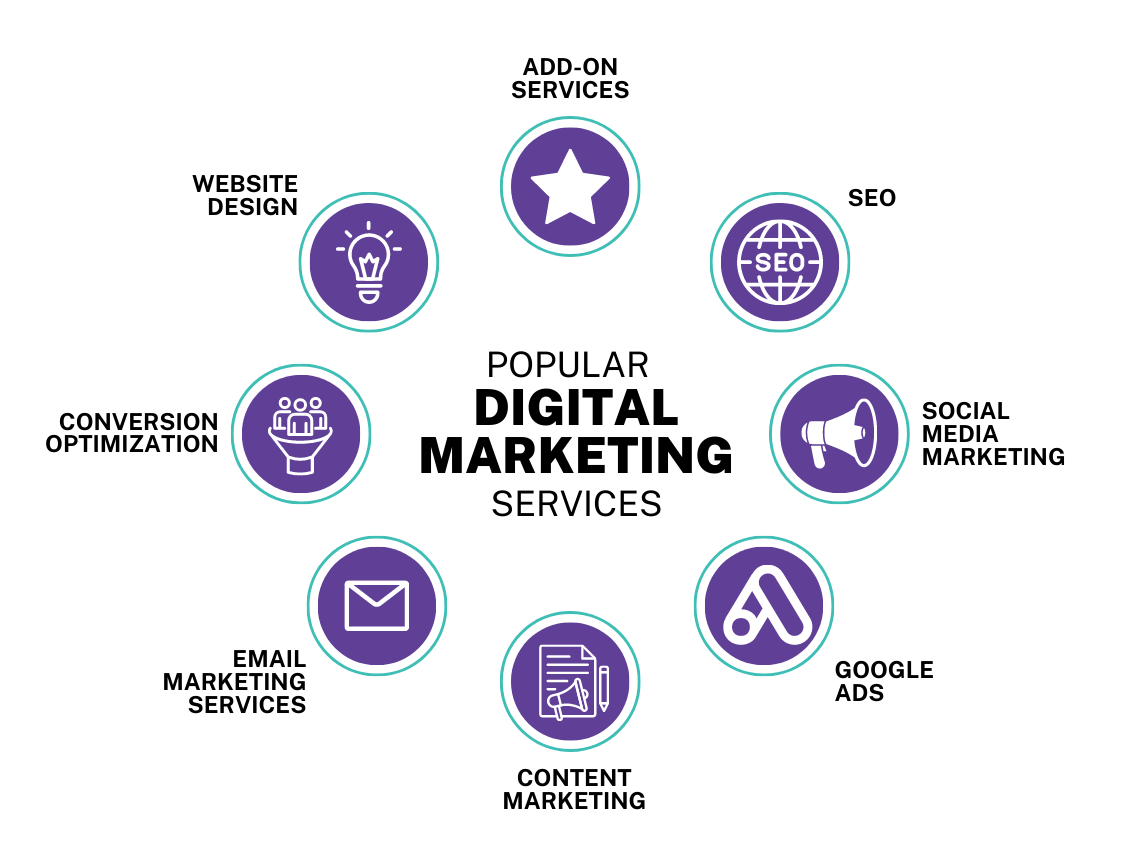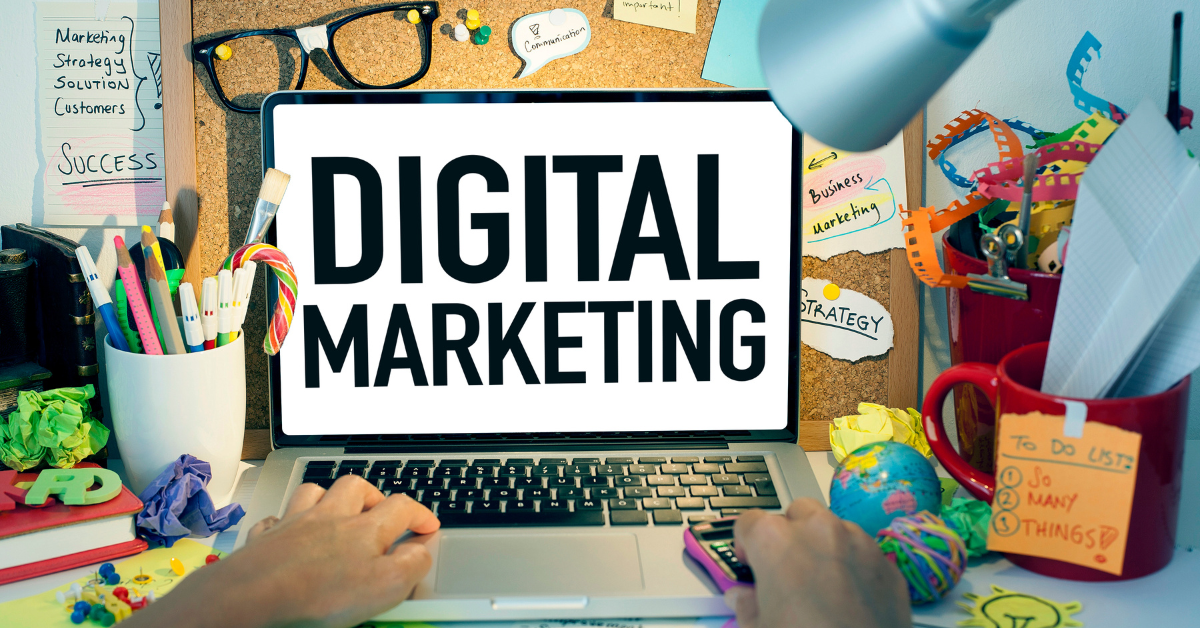In today's rapidly evolving business landscape, the choice between a digital marketing agency and a traditional marketing firm can significantly impact a company's success. As businesses strive to stay competitive in an increasingly digital world, understanding the differences between these two entities is paramount. While digital marketing agencies harness the power of online platforms and cutting-edge technologies, traditional marketing firms rely on more conventional methods to reach their target audience. Let's delve deeper into the distinctions between these two marketing approaches and explore how they cater to the diverse needs of businesses.

Services Offered
Digital marketing agencies offer a wide array of services, including search engine optimization (SEO), social media marketing, content creation, email marketing, pay-per-click (PPC) advertising, and web design. On the other hand, traditional marketing firms focus on conventional methods like print advertisements, television commercials, direct mail campaigns, and event sponsorships.
Target Audience
Digital marketing agencies typically target tech-savvy audiences who prefer online interactions and are more receptive to digital advertising. In contrast, traditional marketing firms cater to a broader demographic, including individuals who are less digitally inclined and rely on traditional media for information.
Approach and Methodologies
Digital marketing agencies adopt data-driven approaches, utilizing analytics and insights to optimize campaigns in real-time. They emphasize agility and experimentation to stay ahead in the dynamic digital landscape. In contrast, traditional marketing firms often follow a more rigid and standardized approach, relying on established marketing principles and practices.
Tools and Technologies
Digital marketing agencies leverage a plethora of tools and technologies such as marketing automation software, data analytics platforms, and social media management tools to streamline processes and enhance campaign performance. Traditional marketing firms rely on traditional mediums like print presses, broadcasting equipment, and outdoor advertising spaces.
Flexibility and Adaptability
Digital marketing agencies excel in adapting to changing market trends and consumer behaviors, thanks to their agile methodologies and innovative mindset. They can swiftly pivot strategies based on performance metrics and emerging opportunities. Traditional marketing firms, however, may face challenges in adapting to the rapidly evolving digital landscape due to their reliance on traditional mediums and conventional approaches.
Cost and Budgeting
Digital marketing agencies often offer flexible pricing models, allowing businesses to scale their marketing efforts according to budget constraints and campaign objectives. Traditional marketing firms may require substantial upfront investments for advertising placements and production costs, making it less accessible for small businesses with limited resources.
Measuring Success
Digital marketing agencies employ a variety of metrics such as website traffic, conversion rates, click-through rates, and return on investment (ROI) to measure the effectiveness of campaigns. In contrast, traditional marketing firms rely on metrics like brand awareness, reach, and frequency to gauge campaign performance.
Case Studies and Examples
Digital marketing agencies showcase success stories of clients who have achieved significant growth and ROI through their digital campaigns. Traditional marketing firms often present case studies highlighting the impact of traditional advertising mediums on brand visibility and market penetration.
Client Interaction and Communication
Digital marketing agencies prioritize transparent communication and collaboration with clients, providing regular updates and insights on campaign performance. Traditional marketing firms may have more structured communication channels, often involving face-to-face meetings and formal presentations.
Industry Trends and Innovations
Digital marketing agencies are at the forefront of technological advancements and industry innovations, constantly exploring new strategies and tools to stay ahead of the competition. Traditional marketing firms may lag behind in adopting cutting-edge technologies and may struggle to keep pace with digital trends.
Challenges and Opportunities
Digital marketing agencies face challenges such as algorithm changes, platform updates, and increasing competition in the digital space. However, they also have ample opportunities to innovate and explore new avenues for growth. Traditional marketing firms encounter challenges in adapting to the digital shift but may find opportunities in niche markets and traditional advertising segments.
Future Outlook
The future of digital marketing agencies looks promising, with continued advancements in artificial intelligence, augmented reality, and personalized marketing strategies. Traditional marketing firms may need to reinvent themselves or integrate digital capabilities to remain relevant in an increasingly digital world.

Conclusion
The choice between a digital marketing agency and a traditional marketing firm depends on various factors such as target audience, budget, objectives, and industry trends. While digital marketing agencies offer agility, innovation, and measurable results in the online space, traditional marketing firms provide expertise in conventional mediums and broader market reach. Ultimately, businesses must carefully evaluate their needs and choose a marketing partner that aligns with their goals and values.
FAQs
What are the primary differences between digital marketing agencies and traditional marketing firms?
Digital marketing agencies focus on online platforms and technologies, while traditional marketing firms rely on offline channels.
How do digital marketing agencies adapt to changing technologies?
Digital marketing agencies utilize agile methodologies and data-driven insights to stay ahead of emerging trends and technologies.
Can traditional marketing firms incorporate digital strategies?
Yes, traditional marketing firms can integrate digital strategies into their offerings to complement traditional advertising methods.
What factors should businesses consider when choosing between a digital marketing agency and a traditional marketing firm?
Businesses should consider their target audience, budget, campaign objectives, and industry trends when selecting a marketing partner.
Are there instances where businesses might benefit from utilizing both digital and traditional marketing services?
Yes, businesses with diverse target audiences and marketing goals may benefit from leveraging both digital and traditional marketing services to reach a broader audience and maximize their marketing impact.





Comments